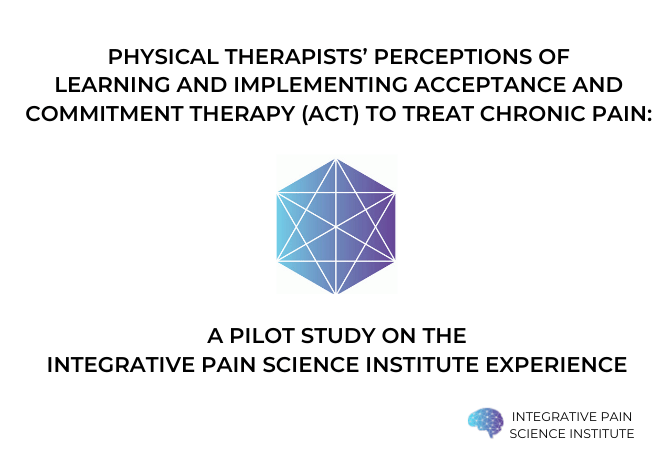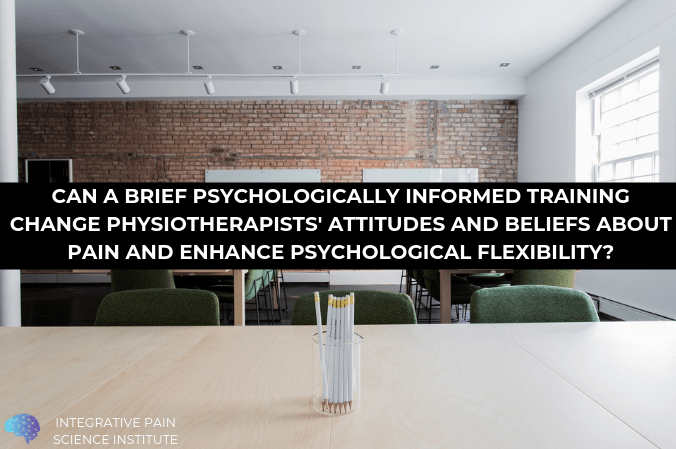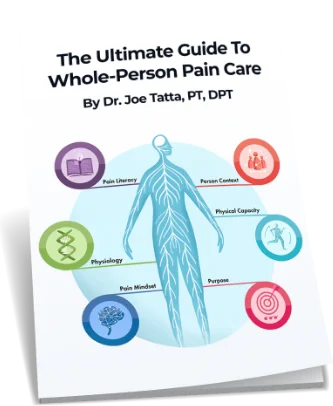Physical Therapists’ Perceptions of Learning and Implementing Acceptance and Commitment Therapy (ACT) to Treat Chronic Pain: A Pilot Study on the Integrative Pain Science Institute Experience

Chronic pain presents a physical and psychological burden for millions of Americans, and is a global health pandemic. This burden has been worsened by the widespread emphasis placed on a biomedical approach that largely neglects to address the psychosocial components and processes of chronic pain. This omission has led to poorly managed pain, the chronification […]
How Can Physical Therapists Promote Self-Management Strategies for People With Pain?

Chronic musculoskeletal conditions such as osteoarthritis, rheumatoid arthritis, neck and back pain are the main cause of disability among working adults. Although no clear pathology is found in most cases, 2016 data shows low back pain as the fifth leading cause – after ischemic heart disease, lung cancer, COPD, and diabetes – of years lost […]
Improve Psychological Flexibility, Improve Chronic Pain Treatment at Your Physical Therapy Clinic

Just as a lack of flexibility throughout your musculoskeletal system can limit one’s range of motion, hold an athlete back from performing optimally, and even increase one’s chances of suffering an injury, such limitations in the mind can have a similar affect. Without a good amount of “psychological flexibility”, as it’s called, researchers say both […]
From Yellow to Green: The Advantages of Psychologically Informed Care

As anyone who has ever driven a car knows, road signs and signals speak as much through color as they do with words. And while bolder colors like red and green leave little room for interpretation, a color like yellow cautions us to take a closer look at potential factors that may be cause for […]
Can a Brief Psychologically Informed Training Change Physiotherapists’ Attitudes and Beliefs About Pain and Enhance Psychological Flexibility?

As physiotherapists (PTs) quickly learn after entering the profession, the troubles and concerns of patients with pain often go beyond physical pain. Distress, manifested by fear of movement, anxiety, frustration, or anger, are common in people experiencing persistent pain. Many forms of chronic pain do not respond to pharmacotherapy or invasive procedures. And modern pain […]
Integrating Psychological Principles into Physical Therapy Treatment

In the first few minutes of a recent initial evaluation, my patient burst into tears as she struggled to describe her journey and frustrations with chronic pain. Has this ever happened to you? She reported visiting doctor after doctor in a desperate attempt to obtain a diagnosis. She wanted to get off of the opiate […]

